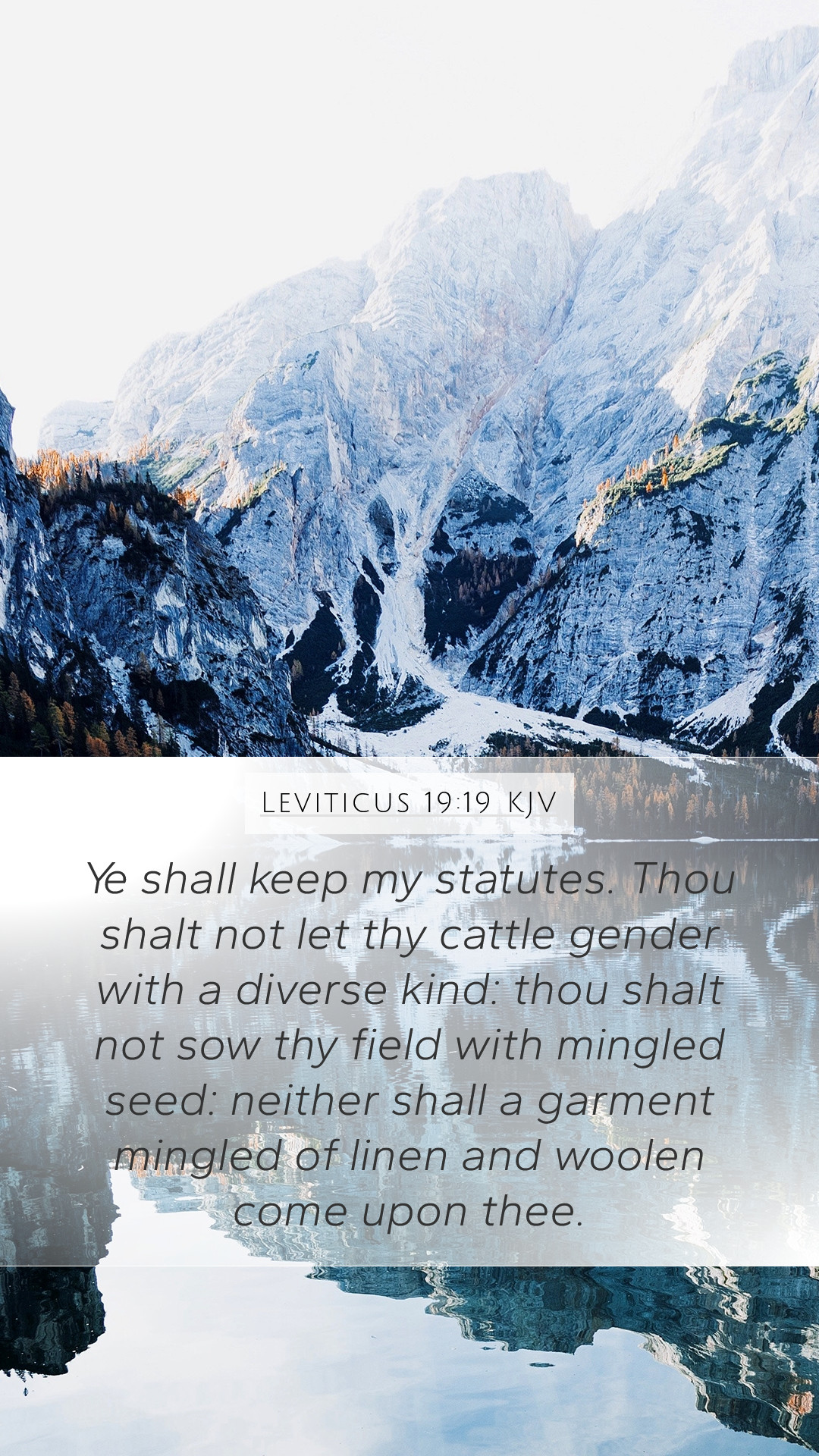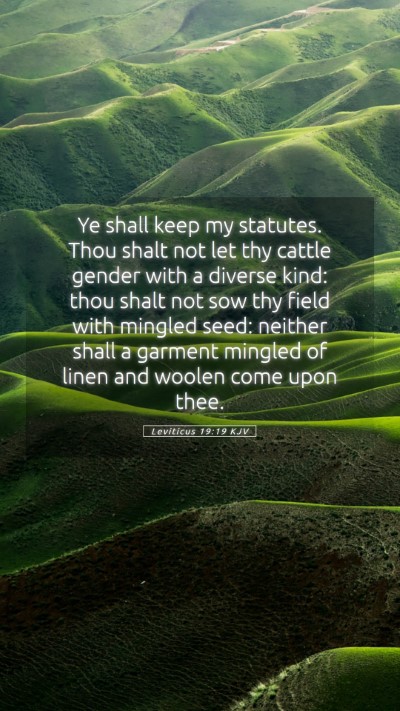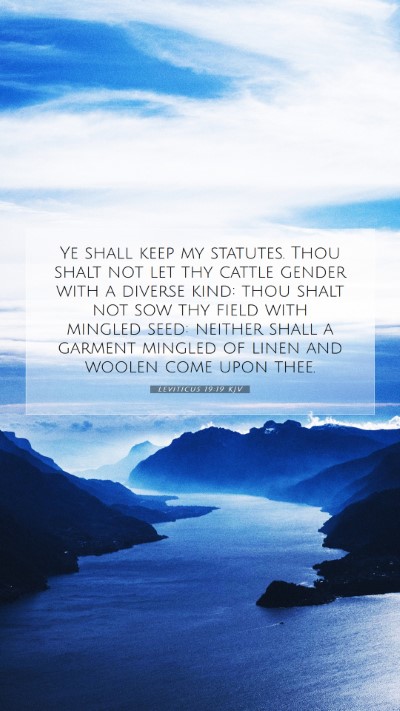Understanding Leviticus 19:19
Bible Verse: Leviticus 19:19 states: "You shall keep my statutes. You shall not let your cattle breed with a different kind. You shall not sow your field with two kinds of seed, nor shall there come upon you a garment of cloth made of two kinds of material."
Verse Overview
This verse encompasses various laws that the Lord commanded His people concerning the aspects of separation and purity. The emphasis in this passage lies on the notion of holiness, which is a central theme throughout the book of Leviticus.
Bible Verse Meanings
The context of Leviticus 19:19 revolves around the principle of maintaining purity and distinction among God's creation. Here are key insights derived from public domain commentaries:
-
Matthew Henry's Commentary
Matthew Henry emphasizes that these laws illustrate a separation that is intended to reflect the holiness of God. The prohibition against mixing different kinds of seed and fabric symbolizes a disdain for a mixed life, urging believers to maintain their unique identity as God’s chosen people.
-
Albert Barnes' Notes
Albert Barnes discusses the implications of mixing breeds and seeds, interpreting this as a warning against moral and spiritual contamination. He suggests that these laws serve a larger purpose, teaching the Israelites about the nature of God and His covenant with them.
-
Adam Clarke's Commentary
Adam Clarke views these commands as reflective of the natural order established by God. He explains that each species has its own purpose and characteristics, and mixing them disrupts this divine order. Clarke reinforces the idea that these instructions apply not only to agriculture and textiles but to the broader life of holiness and purity expected from God’s people.
Scripture Analysis and Commentary
The directive not to mix species or materials can be seen as a metaphor for the spiritual call to maintain fidelity to God. Here are several key reflections:
- Holiness and Identity: The call for separation serves as a reminder that believers are to reflect God's nature in their lives, ensuring that their conduct and choices mirror His holiness.
- Moral Purity: Mixing different kinds showcases a broader notion of allowing outside influences to corrupt moral values, echoing the New Testament's admonition against being unequally yoked (2 Corinthians 6:14).
- Application in Daily Life: While the specific prohibitions may seem distant, the overarching principle encourages followers to discern and maintain their values steadfastly amidst societal pressures.
Cross References
This verse shares thematic connections with several other scripture passages:
- 2 Corinthians 6:14: “Do not be unequally yoked with unbelievers.”
- Deuteronomy 22:9: “You shall not sow your vineyard with two kinds of seed.”
- 1 Peter 1:16: “You shall be holy, for I am holy.”
Conclusion
In summary, Leviticus 19:19 offers rich insights into the nature of God and the expectations placed upon His people. Through an understanding of historical context and the principles of holiness and separation, believers can apply these teachings to modern life. Exploring Christian studies, whether in groups or through online resources, can deepen the understanding of scripture and its implications for everyday living.


